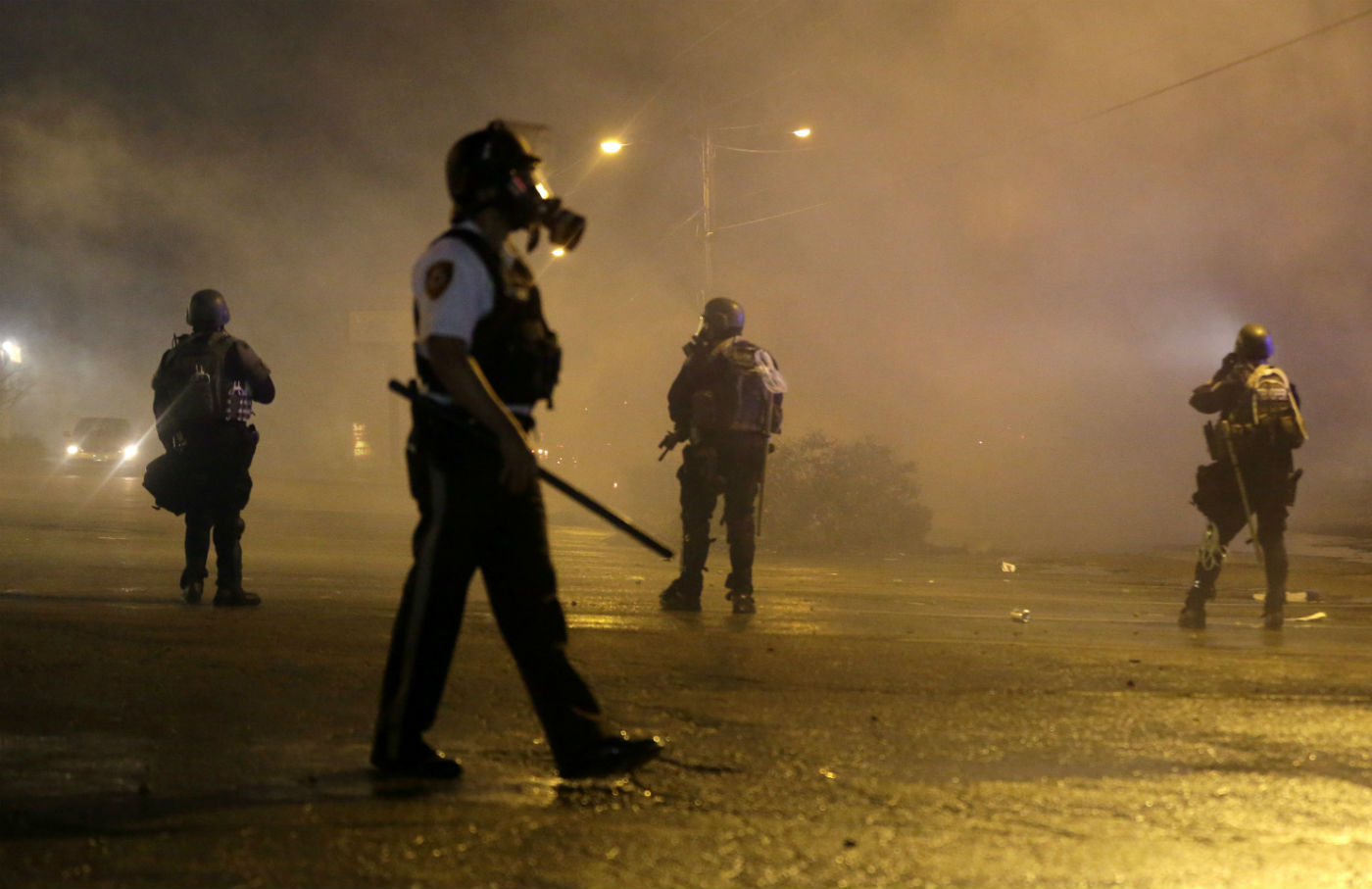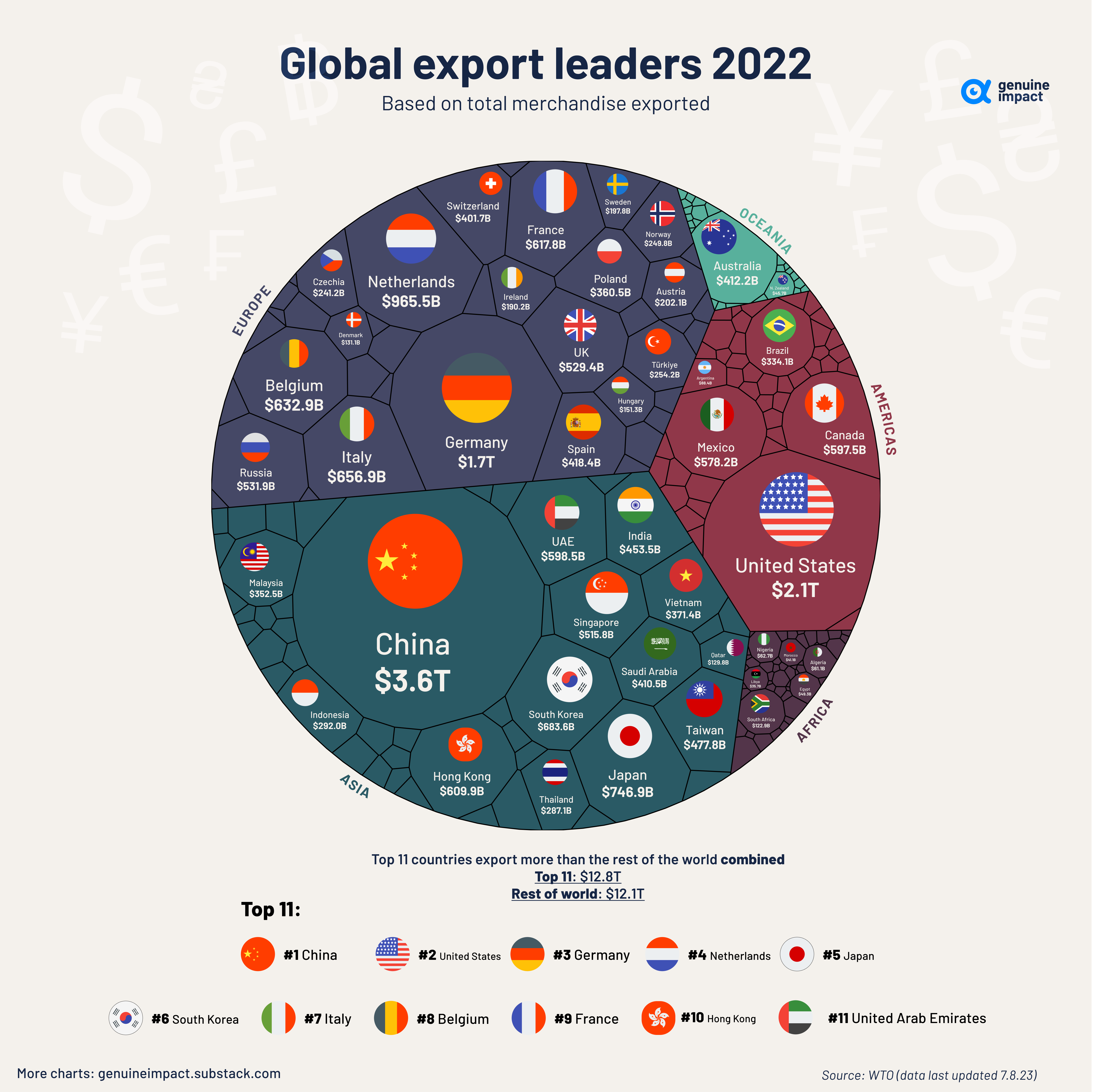OpenAI Facing FTC Investigation: The Future Of ChatGPT And AI Safety

Table of Contents
The FTC's Concerns Regarding OpenAI and ChatGPT
The FTC's investigation into OpenAI likely stems from several key concerns related to consumer protection and deceptive trade practices. The agency is tasked with ensuring fair competition and protecting consumers from unfair or deceptive business practices. In the context of OpenAI and ChatGPT, these concerns likely include:
-
Data Privacy Violations: ChatGPT's training relies on vast amounts of data scraped from the internet. The FTC is likely scrutinizing how OpenAI collects, uses, and protects this data, particularly concerning user privacy and compliance with existing regulations like the California Consumer Privacy Act (CCPA) and other similar state laws. The investigation will explore whether OpenAI obtained informed consent for data usage and if adequate measures are in place to prevent data breaches and unauthorized access.
-
Algorithmic Bias and Fairness: AI models like ChatGPT can inherit and amplify biases present in their training data. The FTC is likely concerned about the potential for algorithmic bias in ChatGPT's outputs, leading to unfair or discriminatory outcomes. This includes exploring whether OpenAI has implemented adequate measures to mitigate bias and ensure fairness in the model's responses.
-
Accuracy and Transparency: ChatGPT, while impressive, sometimes generates inaccurate or misleading information. The FTC may be investigating whether OpenAI has been transparent about the limitations of its technology and whether its marketing materials accurately represent ChatGPT's capabilities. Misrepresenting the chatbot's accuracy could constitute deceptive trade practices.
-
Consumer Protection Concerns: The FTC will be exploring whether OpenAI has taken sufficient steps to protect consumers from potential harms associated with ChatGPT's use, such as the spread of misinformation or the potential for misuse by malicious actors.
The Broader Implications for AI Safety and Regulation
The OpenAI investigation carries far-reaching implications for the future of AI safety and regulation. It serves as a crucial precedent, setting the stage for how regulatory bodies worldwide might approach the oversight of increasingly powerful AI systems. Key implications include:
-
Increased Regulatory Scrutiny: The investigation is likely to trigger increased regulatory scrutiny of other AI companies, prompting the development of clearer guidelines and standards for AI development and deployment. This could involve stricter requirements for data privacy, algorithmic transparency, and bias mitigation.
-
Ethical Guidelines and Oversight: The case highlights the pressing need for robust ethical guidelines and oversight mechanisms in AI development. This requires collaboration between researchers, policymakers, and industry stakeholders to establish ethical frameworks that prioritize human well-being and societal benefit.
-
Promoting Responsible AI: The investigation underscores the critical importance of responsible AI development. This encompasses building AI systems that are trustworthy, reliable, and aligned with human values, necessitating stronger emphasis on testing, validation, and auditing procedures.
-
Algorithmic Accountability: The investigation prompts a necessary conversation about algorithmic accountability. Holding AI developers accountable for the actions of their algorithms is crucial for building trust and ensuring ethical use of AI.
The Future of ChatGPT and Similar AI Models
The FTC investigation's outcome will undoubtedly influence the future of ChatGPT and similar AI models in several key ways:
-
Changes in Development Practices: OpenAI and other AI companies will likely adjust their development practices to enhance data privacy, mitigate bias, and improve the accuracy and transparency of their models. This could include more rigorous testing, validation, and auditing processes.
-
Enhanced Transparency and Accountability: The investigation will likely lead to increased transparency in AI model development, making it easier for users and regulators to understand how these systems work and identify potential risks.
-
Impact on Innovation: While stricter regulations might temporarily slow the pace of AI innovation, it's crucial to remember that responsible innovation is key to building a beneficial AI future. A more measured approach that prioritizes safety and ethics will foster greater public trust.
-
Potential Limitations on Functionality: Depending on the investigation's findings, some features or functionalities of ChatGPT might be restricted or modified to address the concerns highlighted by the FTC.
What Consumers Can Do to Protect Their Data
While regulatory action is crucial, individual users also have a responsibility in protecting their data when interacting with AI systems like ChatGPT:
-
Be Mindful of Data Sharing: Carefully consider the type of data you share with AI chatbots and avoid disclosing sensitive personal information.
-
Review Privacy Policies: Always read the privacy policies of AI services before using them and understand how your data will be collected, used, and protected.
-
Strengthen Online Security: Use strong passwords, enable two-factor authentication, and keep your software updated to enhance your overall online security.
-
Report Concerns: Report any suspicious activity or privacy concerns to the appropriate authorities, including the FTC.
Conclusion
The FTC investigation into OpenAI and ChatGPT marks a pivotal moment in the evolution of artificial intelligence. It emphasizes the urgent need for robust regulations and ethical guidelines to ensure the responsible development and deployment of AI technologies. The future of ChatGPT and similar AI models depends significantly on the outcome of this investigation. As consumers, we must stay informed about this case and advocate for greater transparency and accountability in the AI industry to build a future where AI benefits all of humanity. Understanding the implications of the OpenAI FTC investigation is crucial for navigating the increasingly complex world of AI and protecting ourselves from potential risks.

Featured Posts
-
 Police Cite Safety Concerns Regarding Kartels Restrictions Newsday
May 23, 2025
Police Cite Safety Concerns Regarding Kartels Restrictions Newsday
May 23, 2025 -
 Ipl 2025 Analyzing Kkr And Rcbs Revised Player Lineups
May 23, 2025
Ipl 2025 Analyzing Kkr And Rcbs Revised Player Lineups
May 23, 2025 -
 Open Ai Facing Ftc Investigation The Future Of Chat Gpt And Ai Safety
May 23, 2025
Open Ai Facing Ftc Investigation The Future Of Chat Gpt And Ai Safety
May 23, 2025 -
 China Us Trade Surge Exporters Rush To Meet Trade Deal Deadline
May 23, 2025
China Us Trade Surge Exporters Rush To Meet Trade Deal Deadline
May 23, 2025 -
 Canada Post Strike Averted Details Of New Offer
May 23, 2025
Canada Post Strike Averted Details Of New Offer
May 23, 2025
Latest Posts
-
 Jonathan Groff Eyes Tony Award Glory With Just In Time
May 23, 2025
Jonathan Groff Eyes Tony Award Glory With Just In Time
May 23, 2025 -
 Is Jonathan Groffs Just In Time Performance Tony Worthy
May 23, 2025
Is Jonathan Groffs Just In Time Performance Tony Worthy
May 23, 2025 -
 Jonathan Groff Tony Award Nomination Potential For Just In Time
May 23, 2025
Jonathan Groff Tony Award Nomination Potential For Just In Time
May 23, 2025 -
 Jonathan Groff And Just In Time A Tony Awards Prediction
May 23, 2025
Jonathan Groff And Just In Time A Tony Awards Prediction
May 23, 2025 -
 Could Jonathan Groff Make Tony Awards History With Just In Time
May 23, 2025
Could Jonathan Groff Make Tony Awards History With Just In Time
May 23, 2025
